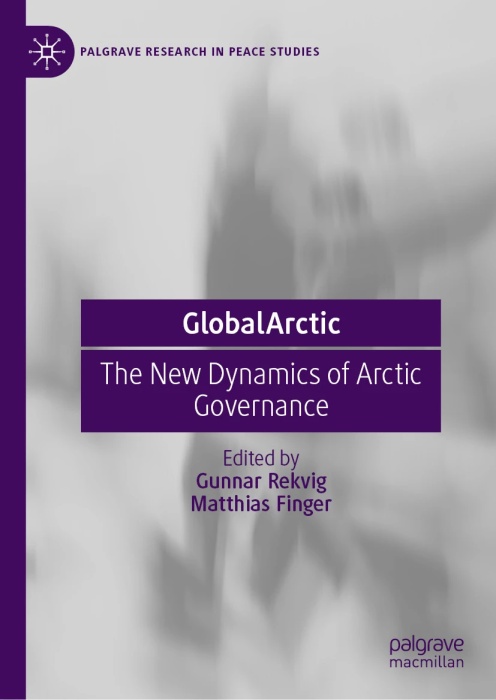A Mediator’s Perspective: Reflecting on the Obstacles and Opportunities for Renewing Dialogue on the Arctic
Our expert Paul Dziatkowiec, Director of Mediation and Peace Support, contributed a chapter for the book “GlobalArctic: The New Dynamics of Arctic Governance” by Palgrave Research in Peace Studies (PRPS).
For so long an inspiring model for international cooperation, the Arctic has fallen victim to the geopolitical ruptures that followed Russia’s brutal attack on Ukraine in February 2022. Even before that, recent years had been marked by greater militarisation in the region, and the war in Ukraine has only exacerbated tensions in the High North. These are exemplified by a broad interruption of constructive communication and practical collaboration between the Western ‘Arctic seven’ states and Russia. This has manifold implications not only for the Arctic, but also globally - including the risk of military escalation, as well as a freeze on many forms of scientific collaboration, which could lead to serious climate impacts and the emergence of long-buried viruses from permafrost thaw.
The chapter explores the factors behind the breakdown of West–Russia cooperation on Arctic affairs - including in the domains of security, science, and the environment - and examines the potential role of Track II dialogue in averting the worst consequences for the Arctic region of the ensuing geopolitical divisions. The following aspects are explored:
- From cooperation to confrontation, the end of ‘Arctic Exceptionalism’: an overview of how Russia’s war on Ukraine disrupted decades of West–Russia cooperation in the Arctic, and how the resulting geopolitical fractures have impacted the perception of the Arctic as an ‘exceptional’ region that was traditionally relatively less affected by geopolitical shocks.
- The potential role of Track II dialogue: from the mediator’s perspective, an assessment of how discreet and inclusive Track II diplomacy can help identify entry points, develop creative policy ideas, and channel them to decision-makers. Policy ideas include restarting information exchange through science diplomacy on some of the pressing issues facing the Arctic, such as permafrost thaw; jointly extracting Soviet-era radioactive waste from the seabed; as well as offering unilateral gestures aimed at rebuilding trust, or agreeing confidence-building measures to prevent an inadvertent military escalation.
- Drawing inspiration from past successes: a recollection of historic examples of cooperation across geopolitical fault-lines where there were strong shared interests or threats; for example the eradication of smallpox, conclusion of arms control treaties, or the reduction of the hole in the Ozone payer, all during the Cold War. These cases demonstrate that even during geopolitical tensions, collaboration could occur and delivered important results for the world as a whole.
Disclaimer: This publication was originally published on Springer Nature website. The views, information and opinions expressed in this publication are the author’s/authors’ own and do not necessarily reflect those of the GCSP or the members of its Foundation Council. The GCSP is not responsible for the accuracy of the information.


